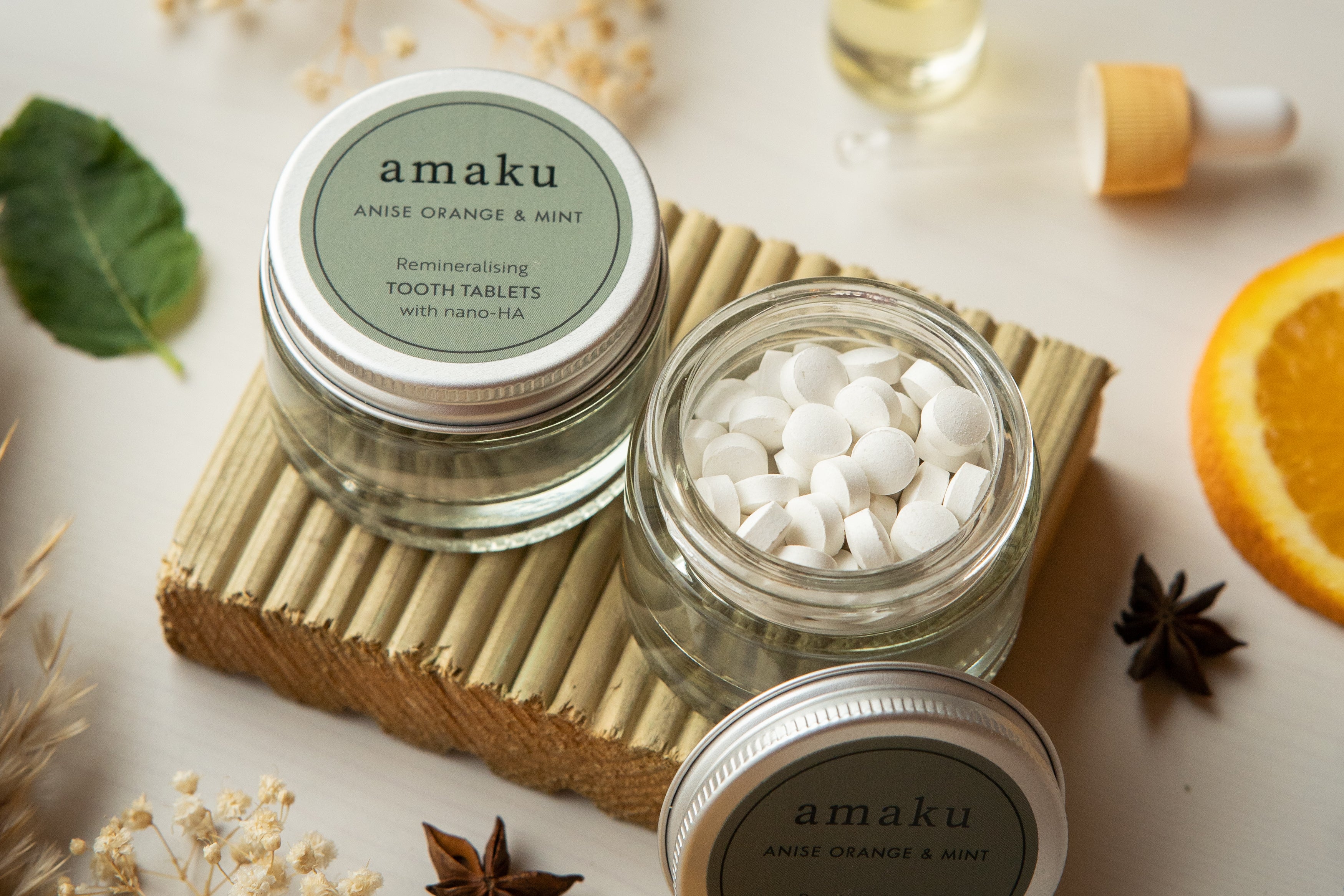Following a decision by the UK’s Chief Medical Officers last September, the UK government is poised to add fluoride to our tap water supply. We look at whether or not this public health policy is good for our health…
As you fill up the kettle from your kitchen tap, you probably don’t think about what additives might be contained in your crystal-clear drinking water. Whether you take your brew black or add milk, the government will soon have the right to decide what else goes into to your cup of tea.
That’s because the tap water in your home looks set to have fluoride added, following a decision by the UK’s Chief Medical Officers last September. They ruled that ‘water fluoridation is an effective public health intervention for reducing tooth decay and improving dental health equality across the UK’.
Where is fluoride added to tap water in the UK?
Currently, only about 10 per cent of the UK has a fluoridated water supply. The majority of these are through local fluoridation schemes. The rest (about eight per cent) are from naturally fluoridated water.
But the Health and Care Bill, which is now being debated in Parliament, has a water fluoridation policy paper. It states: ‘Water fluoridation is an effective and safe public health intervention recommended by the World Health Organization that would benefit both adults and children, reduce oral health inequalities and offer a significant return on investment’.
If passed, this bill will give government ministers the power to roll out water fluoridation nationwide. And adding fluoride to household water supplies is championed by many mainstream public health and dental professionals. But what’s the other side of the story?

The tap water in your home looks set to have fluoride added, following a decision by the UK’s Chief Medical Officers last September.
Is fluoride in UK tap water safe?
Just asking that question is considered controversial, as this subject attracts fanatical rhetoric on both sides of the debate. So much so that those daring to raise more balanced questions on efficacy, efficiency and safety of fluoridation are silenced.
One top UK scientist offering objective criticism on water fluoridation is Professor Stephen Peckham. He is director of the Centre for Health Service Studies at Kent University and a professor at the London School of Hygiene and Tropical Medicine.
‘If you’re going to put something in the drinking water for the whole population, you’d better be absolutely certain what you’re doing is safe. I would say you can’t guarantee that for fluoride,’ he says.
Cons of fluoride in UK tap water
Flouride is a mineral found naturally in soil, water and foods. However, it is not an essential nutrient for human health. The World Health Organization says long-term exposure to drinking water with more than 1.5 parts per million (ppm) of fluoride can lead to health problems. UK water companies with fluoridation schemes already in place fluoridate up to 1ppm. However, the USA lowered its safe levels to 0.7ppm, in 2015.
‘Fluoride intake should be based on body weight. But delivering fluoride in the water supply means you can’t control how much each person gets. So, talking about a safe level is highly problematic as you can’t control the dose,’ says Professor Peckham.
For instance, if you enjoy several daily cups of tea and usually choose a budget brand grown in India, your fluoride intake may be higher. This is because the groundwater in India can contain as much as 48 milligrams per litre.
You might also be surprised to discover that fluoride added to water is not the same as the more expensive, pharmaceutical-grade fluoride found in toothpaste. The fluoride in your water supply starts off as a toxic and corrosive industrial compound, manufactured from quarried fluoride or extracted from aluminium smelting scrubbers.

One of the key arguments for adding fluoride to UK tap water is to prevent tooth decay. However, this may be an ineffective method.
Does fluoride in UK tap water prevent tooth decay?
The main argument in favour of fluoridating the water supply is to reduce tooth decay, primarily in children. Undoubtedly a noble aim, but also an ineffective one, according to Professor Peckham.
‘Evidence says the benefits of fluoride are not from ingesting it. Applying it to the surface of your teeth by brushing with fluoride toothpaste can help tooth re-enamelisation. But if you drink fluoride, it goes into your body instead of onto your teeth. This means there is little benefit.
‘At best, the benefits of ingesting fluoride are miniscule. After 50 years of water fluoridation in the USA, tooth carries (cavities) are still the biggest dental health problem there,’ he says. Interestingly, most European countries have rejected water fluoridisation yet have also seen big drops in the rate of tooth cavities. This is according to Harvard University School of Public Health.
Health impacts of fluoride
The main known health impact of too much fluoride is dental fluorosis. This is a brown staining on teeth, sometimes making the enamel brittle. But researchers are raising red flags over other health issues. Plus, what you probably didn’t know is that when you ingest fluoride, about half remains in your body permanently.
‘Over time, fluoride builds up in your teeth, skeletal system, some soft tissue and can also cross the blood-brain barrier. Studies found pregnant women who are exposed to levels of fluoride not dissimilar to what is proposed for the UK have children with lower IQ scores,’ says Professor Peckham.
How fluoride affects your thyroid
Peckham’s own research found a link with fluoride and hypothyroidism. This is an underactive thyroid gland that causes fatigue, weight gain, hair loss, brain fog and low mood. Hypothyroidism is more common in women, and can cause early onset of menopause.
‘Our study looked at levels of hypothyroidism geographically, and compared those to where water was fluoridated. We found hypothyroidism risk may be greater in areas where water is fluoridated. This study was criticised for being observational. Yet studies now relied upon to show fluoride has a beneficial effect were conducted in a similar way,’ he says.
A Cochrane review on fluoride and tooth decay in 2015 found very limited benefits based on old studies. It also found insufficient evidence fluoride in water reduces health and social inequalities. This is one of the arguments for adding it to UK water supplies.
Should we be adding fluoride to tap water?
So, with limited benefits and possible health issues, why are authorities making fluoridated water mandatory for everybody? ‘I think it’s a retrograde step. We are implementing a policy that was devised in the 1920s and 1930s with limited good-quality evidence to support it – and growing evidence of harm. I don’t think it’s an appropriate public health policy because it has marginal benefit, which can be bettered using other methods,’ says Professor Peckham.
‘Education on reducing sugar in your diet and on oral hygiene, then following up with families who struggle, with schemes such as Childsmile, is a more effective and proactive solution. Potentially, water fluoridation could turn out to be damaging to health – and if there’s even a small question mark over safety, we shouldn’t proceed with nationwide water fluoridation.’
Q&A with Water for Health founder Roddy MacDonald
Why is it important to remove fluoride from the water?
‘Removal of fluoride from water is a very emotive subject. The prime reason that the Government give to introduce it into the public water supply is to improve dental health. The science supporting that is definitely not compelling. Dental health could probably be achieved other ways including better education to reduce sugar intake, without resorting to mass medication through the public water supply.
‘However what needs to be considered is the impact that fluoride has on overall body health. There are serious concerns about its impact on the thyroid gland, on the pineal gland on the brain and on our skeletal system.
‘Although it is argued that there is already naturally occurring concentrations of fluoride in certain areas of our water supply it is in a different form from the fluoride that is used in water treatment, which is an industrial waste product.
Aside from fluoride, why do you think home water filtration is important?
‘There are very many reasons why home water filtration should be considered. The first consideration is to remove contaminants from the water supply, which may be present in very small concentrations. What is not known is the cumulative effect of ingesting low levels of toxins. With toxicity being implicated in increasing numbers of diseases and having an adverse effect on our immune system this should be a priority.
‘Secondly, we do not view that the removal of contaminants results in healthy water. We believe that healthy water should not only be as clean as possible but should have good structure, be mineral rich, have an alkaline pH and ideally have antioxidant properties. This helps to meet the requirements of the body for hydration.
‘Thirdly we consider that there is a huge environmental cost in producing, transporting and distributing bottled water. Now with the advances in point of use it is possible to produce healthier water from treating tap water at a fraction of the cost financially and environmentally.
‘We believe that good health promoting water should be the No1 nutrient for the body and if people were properly hydrated it would have a huge impact on human health.’
How to minimise your exposure to fluoride

Water for Health Ltd Energy Plus Under-Sink Filter System (£342.75)
This four-filter water purifier is compact enough to fit in an under-sink cupboard. It connects to the cold-water feed pipe and sends water to a dedicated filter tap or into the filter connection of a three-way tap. Electrical connection is not required and there’s no water wastage.
Reader offer: Use code SANTE at checkout for 10% off on the Whole House filter or Energy Plus.

Zerowater 12-Cup Filter (£39.99)
This handy jug is for your kitchen countertop and filters contaminants and toxins from tap water. It has a five-stage filter to drastically reduce fluoride, metals, salts, pesticides and organic compounds. Just fill with tap water, wait a few minutes for the water to pass through the filter, then pour from the jug into your glass or kettle.

amaku Tooth Tablets (£12.50)
Skip fluoride in toothpaste with these teeth-cleansing tablets to strengthen, protect and whiten teeth. They contain nano-hydroxyapatite, an alternative to fluoride, and were developed by a British scientist who discovered tooth powder products are effective for controlling dental plaque and gingivitis.
Words: Angela Kennedy | Images: Shutterstock







